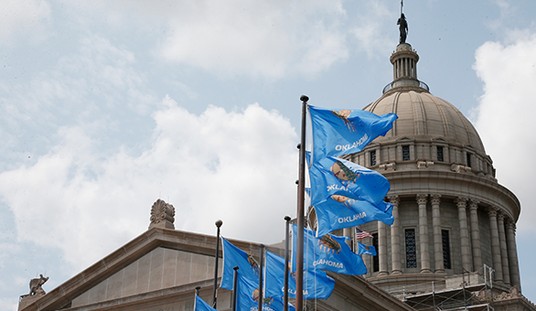Trinity Church, an left-leaning, politically activist church in New York City, attempted to force a shareholder vote on the kind of firearms sold by Walmart in federal court.
Companies nationwide watched the case with rapt attention, as a victory by Trinity Church to determine something as mundane as product selection would create a quagmire of competing proposals from different special interest groups, making it nearly impossible for companies to function day-to-day.
Fortunately, a federal appeals court saw the obvious insanity of allowing such a proposal to move forward, and sided with Walmart and freedom.
A federal appeals court on Tuesday lifted an injunction that would have required Wal-Mart Stores Inc to let shareholders vote on a proposal to tighten oversight of its sale of guns with high-capacity magazines.
In a brief order, the 3rd U.S. Circuit Court of Appeals vacated a permanent injunction imposed in November by U.S. District Judge Leonard Stark that would have required a vote at Wal-Mart’s annual meeting in June.
Wal-Mart had objected that allowing a vote on the proposal from Trinity Church, a historic church in downtown Manhattan, would “open the floodgates” to more shareholder proposals, and cause excessive interference in day-to-day business operations.
The church’s proposal would have required Wal-Mart’s board to more closely examine the sale of products that might endanger public safety, hurt Wal-Mart’s reputation, or offend “family and community values” integral to Wal-Mart’s brand.
Trinity said these products might include guns with clips holding more than 10 rounds, a type it said “enabled” mass killings in Newtown, Connecticut and Aurora, Colorado.
It also said such products could include music that depicts sex or violence, the sale of which Wal-Mart already limits.
In Tuesday’s order, the appeals court said “Wal-Mart may exclude Trinity’s proposal from its 2015 proxy materials.”
There has been a sad trend among some churches in some parts of the country to go beyond outreach into outright political activism, as Dave Workman notes in his article discussing both the Walmart case and the activist congregations that took part in the battle over anti-gun I-594 in Washington last year, which resulted in the passing of an unenforceable “universal background checks” law now being challenged in federal court.
Without devolving into a theological debate, we’d simply suggest that churches should focus on the work of saving souls and helping the needy without interjecting themselves into political battles that could end up costing them their non-profit status for delving into non-prophet issues.








Join the conversation as a VIP Member